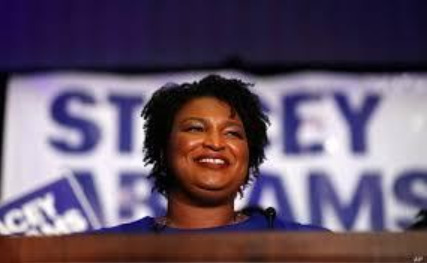In her new book, The Calling, author and founder of Move the Crowd, Rha Goddess, proclaims this the Age of the Citizen, and discusses what it means to be an empowered citizen. It served as a cross-reference as I read the names of some of the nominees for the 2021 Nobel Peace Prize.
Nominations for the Peace Prize are accepted by the Norwegian Nobel Committee from a fairly wide field of lawmakers, past winners, heads of state, and university chancellors among others. The names of those nominated for the prize cannot officially be confirmed for 50 years, but nominators sometimes reveal their picks right after the deadline.
Among those of particular interest to me this year are Stacey Abrams and Black Lives Matter, especially fitting now, in our nation’s annual commemoration of Black History Month.
Ms. Abrams would be the first to say that her work as a voting rights activist is not a solo endeavor. She is part of a network of African American women who have been working on voting rights in Georgia for a decade. But Ms. Abrams’ efforts stand out as both a lead strategist and a tireless retail campaigner, crisscrossing her state to fill registration rolls, block after speaking gig after social media post after news interview. She even starred in the documentary, All In, to help galvanize the message. Georgia thus became a pivotal state in this year’s elections, shifting the balance of power in Congress.
Although now eight years old, the Black Lives Matter Global Network Foundation was jolted back into the spotlight after the tragic and callous killing of George Floyd by Minneapolis police in 2020. The movement ignited largely peaceful mass protests across the country and around the world, drawing diverse communities into the streets, and prompting a wrenching public reckoning on the dimensions of white supremacy in every corner of society.
The names of its three African American women founders (Patrisse Cullors, Alicia Garza, and Opal Tometi) are fairly well known. But it is its stance as a “leaderful” movement – no one person taking charge – that is its signature feature and accounts for its powerful effectiveness as a movement.
These and some of the other Nobel nominees are examples of this Age of the Citizen. They are individuals harnessing their personal power to impact the world. They are often women doing the unpaid community work of inspiring collective activism and providing services that governments neglect.
We tend to think of power in its more outsized and dramatic expressions. In nature, it’s the violence and disruption of hurricanes, wildfires, and earthquakes. In leaders, it is the hard-charging, tough as nails bully boss or a country’s dictator.
But power is equally effective in its quiet, subliminal forms which we generally overlook and take for granted.
Think of the immense power of gravity holding everything in place on the planet, and the planet in its orbit. Consider the profound power of nature as it emerges from the sleep of winter through the gestation and crowning of spring.
No molecule, atom, or cell exists without power, the same power that births new stars and galaxies and pushes the continuous expansion of the universe. It is this power, this spark that is literally at the core of each of us.
In the Age of the Citizen, those who emerge as leaders have moved beyond the urgency of conflict to find their unique source of power within.
They know this power is open to all and not to the fortunes of a few. It is the power that can never be granted or bestowed but must be claimed, donned, and lived.
Does that sound trite? Like it’s an easy thing to do? It is not, when we are blinded by the seeming discord of the world around us, “when the truth is found to be lies” as the song says. It is not, when the illusion – what the Buddhists and Hindus call maya – of power as residing in raised voices, targeted tweets, loaded guns and guided missiles disguises the actuality of power in principles that are largely unseen but undeniably felt.
It is this sense of self as connected to the whole that fuels action, fired by a keen sense of justice, a burning desire for fairness, a demand for respect, unrelenting hope, and courage that stands firm in the face of fear.






